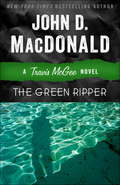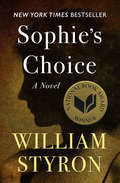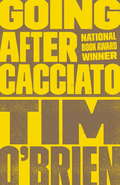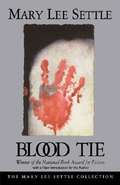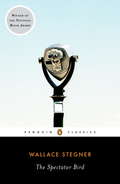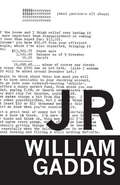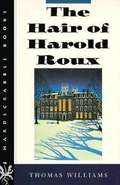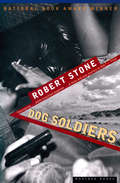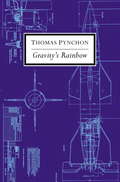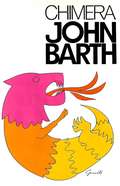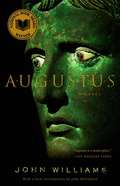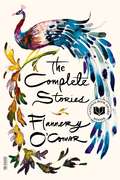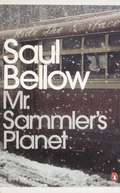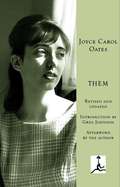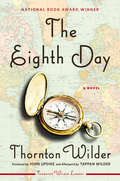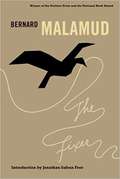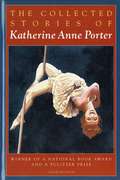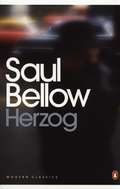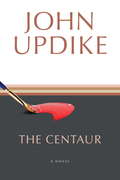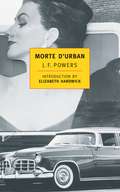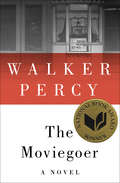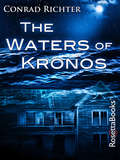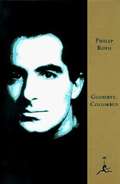Special Collections
National Book Award Winners - Fiction
- Table View
- List View
The Green Ripper
by John D. MacdonaldBeautiful girls always grace the Florida beaches, strolling, sailing, relaxing at the many parties on Travis McGee's houseboat, The Busted Flush. McGee was too smart--and had been around too long--for many of them to touch his heart. Now, however, there was Gretel. She had discovered the key to McGee--to all of him--and now he had something to hope for. Then, terribly, unexpectedly, she was dead. From a mysterious illness, or so they said. But McGee knew the truth, that Gretel had been murdered. And now he was out for blood...
Winner of the National Book Award
Sophie's Choice
by William StyronThis award-winning novel of love, survival, and agonizing regret in post–WWII Brooklyn &“belongs on that small shelf reserved for American masterpieces&” (The Washington Post Book World). Winner of the National Book Award and a modern classic, Sophie&’s Choice centers on three characters: Stingo, a sexually frustrated aspiring novelist; Nathan, his charismatic but violent Jewish neighbor; and Sophie, an Auschwitz survivor who is Nathan&’s lover. Their entanglement in one another&’s lives will build to a stirring revelation of agonizing secrets that will change them forever. Poetic in its execution, and epic in its emotional sweep, Sophie&’s Choice explores the good and evil of humanity through Stingo&’s burgeoning worldliness, Nathan&’s volatile personality, and Sophie&’s tragic past. Mixing elements from Styron&’s own experience with themes of the Holocaust and the history of slavery in the American South, the novel is a profound and haunting human drama, representing Styron at the pinnacle of his literary brilliance. This ebook features an illustrated biography of William Styron, including original letters, rare photos, and never-before-seen documents from the Styron family and the Duke University Archives.
Going After Cacciato
by Tim O'Brien"To call Going After Cacciato a novel about war is like calling Moby-Dick a novel about whales."So wrote The New York Times of Tim O'Brien's now classic novel of Vietnam. Winner of the 1979 National Book Award, Going After Cacciato captures the peculiar mixture of horror and hallucination that marked this strangest of wars.In a blend of reality and fantasy, this novel tells the story of a young soldier who one day lays down his rifle and sets off on a quixotic journey from the jungles of Indochina to the streets of Paris. In its memorable evocation of men both fleeing from and meeting the demands of battle, Going After Cacciato stands as much more than just a great war novel. Ultimately it's about the forces of fear and heroism that do battle in the hearts of us all.
Winner of the National Book Award
Blood Tie
by Mary Lee SettleThe story tells the political, social, psychological and anthropological aspects of American and European expatriates who took refugee in an ancient Turkish city.
Winner of the 1978 National Book Award.
The Spectator Bird
by Wallace StegnerJoe Allston is a retired literary agent who is, in his own words, "just killing time until time gets around to killing me. " His parents and his only son are long dead, leaving him with neither ancestors nor descendants, tradition nor ties. His job, trafficking the talent of others, had not been his choice. He passes through life as a spectator.
A postcard from a friend causes Allston to return to the journals of a trip he had taken years before, a journey to his mother's birthplace, where he'd sought a link with the past. The memories of that trip, both grotesque and poignant, move through layers of time and meaning, and reveal that Joe Allston isn't quite spectator enough.
Winner of the National Book Award
J R
by Rick Moody and William GaddisJ R is a biting satire about the many ways in which capitalism twists the American spirit into something dangerous, yet pervasive and unassailable. At the center of the novel is a hilarious eleven year old-J R-who with boyish enthusiasm turns a few basic lessons in capitalist principles, coupled with a young boy's lack of conscience, into a massive and exploitative paper empire. The result is one of the funniest and most disturbing stories ever told about the corruption of the American dream.
Winner of the 1976 National Book Award
The Hair of Harold Roux
by Thomas WilliamsIn The Hair of Harold Roux, we are introduced to Aaron Benham: college professor, writer, husband, and father. Aaron-when he can focus-is at work on a novel, The Hair of Harold Roux, a thinly disguised autobiographical account of his college days. In Aaron's novel, his alter ego, Allard Benson, courts a young woman, despite the efforts of his rival, the earnest and balding Harold Roux-a GI recently returned from World War II with an unfortunate hairpiece. What unfolds through Aaron's mind, his past and present, and his nested narratives is a fascinating exploration of sex and friendship, responsibility and regret, youth and middle age, and the essential fictions that see us through.
Winner of the National Book Award
Dog Soldiers
by Robert StoneIn Saigon during the waning days of the Vietnam War, a small-time journalist named John Converse thinks he'll find action - and profit - by getting involved in a big-time drug deal. But back in the States, things go horribly wrong for him. Dog Soldiers perfectly captures the underground mood of America in the 1970s, when amateur drug dealers and hippies encountered profiteering cops and professional killers - and the price of survival was dangerously high.
Winner of the National Book Award
Gravity's Rainbow
by Thomas Pynchon"A screaming comes across the sky..."
A few months after the Germans' secret V-2 rocket bombs begin falling on London, British Intelligence discovers that a map of the city pinpointing the sexual conquests of one Lieutenant Tyrone Slothrop, U.S. Army, corresponds identically to a map showing the V-2 impact sites. The implications of this discovery will launch Slothrop on an amazing journey across war-torn Europe, fleeing an international cabal of military-industrial superpowers, in search of the mysterious Rocket 00000, through a wildly comic extravaganza.
Winner of the 1974 National Book Award
Chimera
by John BarthChimera is a 310 page mythological fantasy novel written by the distinguished novelist and Humanities professor John Barth and first published in 1972. Random House provides the following illustration and analysis of the work's artistic tone and value:
"At this point I interrupted my sister as usual to say, 'You have a way with words, Scheherazade. This is the thousandth night I've sat at the foot of your bed while you and the King made love and you told him stories, and the one in progress holds me like a genie's gaze.'"
The speaker here is Dunyazade, kid sister of Scheherazade of The Thousand and One Nights, who has her own way with words. There is also Perseus, the demigod who slew the Gorgon Medusa, and yet finds himself at forty "sealeveled, parched and plucked, every grain in my molted sandals raising blisters, and beleaguered by the serpents of my past." And Bellerophon, the hero who tames the winged horse Pegasus only to discover, "My life's a failure. I'm not a mythic hero. I never will be." Like the Chimera of myth, which had a lion's head, a goat's body, and a serpent's tail, they are all joined into a single, dazzling whole that is, in a sense, the culmination of all of John Barth's work thus far, transforming myth into daily reality and vice versa.
"To the objection that classical mythology, like the Bible, is no longer a staple of the average reader's education and that, consequently, the old agonies of Oedipus or Antigone are without effect on contemporary sensibility, I reply, hum, I forget what, something about comedy and selfexplanatory context."
The reader needs no previous acquaintance with the characters to be caught up in this hilariously exuberant exploration of the nature of the hero, the multitudinous relationships between men and women, and the mortal search for immortality, which, it is persuasively suggested, may lie not in deeds but in words.
Winner of the National Book Award
Augustus
by John A. WilliamsA brilliant and beautifully written novel in the tradition of Robert Graves’ I, Claudius, Augustus is a sweeping narrative that brings vividly to life a compelling cast of historical figures through their letters, dispatches, and memoirs.
A mere eighteen years of age when his uncle, Julius Caesar, is murdered, Octavius Caesar prematurely inherits rule of the Roman Republic. Surrounded by men who are jockeying for power–Cicero, Brutus, Cassius, and Mark Antony–young Octavius must work against the powerful Roman political machinations to claim his destiny as first Roman emperor. Sprung from meticulous research and the pen of a true poet, Augustus tells the story of one man’s dream to liberate a corrupt Rome from the fancy of the capriciously crooked and the wildly wealthy.
Winner of the National Book Award
The Complete Stories Of Flannery O'Connor
by Flannery O'ConnorThe publication of this extraordinary volume firmly established Flannery O'Connor's monumental contribution to American fiction. There are thirty-one stories here in all, including twelve that do not appear in the only two story collections O'Connor put together in her short lifetime--Everything That Rises Must Converge and A Good Man Is Hard to Find.
O'Connor published her first story, "The Geranium," in 1946, while she was working on her master's degree at the University of Iowa. Arranged chronologically, this collection shows that her last story, "Judgement Day"--sent to her publisher shortly before her death―is a brilliantly rewritten and transfigured version of "The Geranium." Taken together, these stories reveal a lively, penetrating talent that has given us some of the most powerful and disturbing fiction of the twentieth century. Also included is an introduction by O'Connor's longtime editor and friend, Robert Giroux.
Winner of the National Book Award
Mr. Sammler's Planet
by Saul BellowMr. Artur Sammler, Holocaust survivor, intellectual, and occasional lecturer at Columbia University in 1960s New York City, is a “registrar of madness,” a refined and civilized being caught among people crazy with the promises of the future (moon landings, endless possibilities). His Cyclopean gaze reflects on the degradations of city life while looking deep into the sufferings of the human soul. “Sorry for all and sore at heart,” he observes how greater luxury and leisure have only led to more human suffering. To Mr. Sammler—who by the end of this ferociously unsentimental novel has found the compassionate consciousness necessary to bridge the gap between himself and his fellow beings—a good life is one in which a person does what is “required of him.” To know and to meet the “terms of the contract” was as true a life as one could live. At its heart, this novel is quintessential Bellow: moral, urbane, sublimely humane.
Winner of the National Book Award
them
by Joyce Carol OatesA novel about class, race, and the horrific, glassy sparkle of urban life, them chronicles the lives of the Wendalls, a family on the steep edge of poverty in the windy, riotous Detroit slums. Loretta, beautiful and dreamy and full of regret by age sixteen, and her two children, Maureen and Jules, make up Oates' vision of the American family--broken, marginal, and romantically proud.
The novel's title, pointedly uncapitalized, refers to those Americans who inhabit the outskirts of society--men and women, mothers and children--whose lives many authors in the 1960s had left unexamined.
Winner of the National Book Award
The Eighth Day
by Thornton WilderOn a Sunday afternoon in 1902 in Coaltown, Illinois, mine manager Breckenridge Lansing is shot and killed at a target practice. John Ashley, a longtime family friend, is convicted of murder and sentenced to death. On his way to the execution a mysterious rescue party takes over the prisoner's railway car and spirits him away. This sprawling novel lays bare the lives of the Ashley and Lansing families, each marked with tragedy yet sustained by hope. Wilder sees this story as part of the vast weave of human history. The novel examines large philosophical themes - faith, hope, love, and the meaning of life. The intricate plot is powered by two questions: who really killed Breckenridge Lansing? And who were the rescuers who saved John Ashley's life?
Winner of the National Book Award
The Fixer
by Bernard MalamudWinner of the Pulitzer Prize and the National Book Award for Fiction, this magnificent novel is the story of an ordinary man accused of "ritual murder" and of his heroic victory over almost incredible brutality and degradation.
The Collected Stories of Katherine Anne Porter
by Katherine Anne PorterPorter’s reputation as one of Americanca’s most distinguished writers rests chiefly on her superb short stories. This volume includes the collections Flowering Judas; Pale Horse, Pale Rider; and The Leaning Tower as well as four stories not available elsewhere in book form.
Winner of the National Book Award and the Pulitzer Prize.
Herzog
by Saul BellowWinner of the National Book Award for Fiction, Herzog is the story of Moses Herzog, great sufferer, joker and moaner, cuckold, charmer, a man of our time.
The Centaur
by John UpdikeWINNER OF THE NATIONAL BOOK AWARD AND THE PRIX DU MEILLEUR LIVRE ÉTRANGER The Centaur is a modern retelling of the legend of Chiron, the noblest and wisest of the centaurs, who, painfully wounded yet unable to die, gave up his immortality on behalf of Prometheus. In the retelling, Olympus becomes small-town Olinger High School; Chiron is George Caldwell, a science teacher there; and Prometheus is Caldwell's fifteen-year-old son, Peter. Brilliantly conflating the author's remembered past with tales from Greek mythology, John Updike translates Chiron's agonized search for relief into the incidents and accidents of three winter days spent in rural Pennsylvania in 1947. The result, said the judges of the National Book Award, is "a courageous and brilliant account of a conflict in gifts between an inarticulate American father and his highly articulate son."
Morte d'Urban
by Elizabeth Hardwick and J. F. PowersThe hero of J.F. Powers's comic masterpiece is Father Urban, a man of the cloth who is also a man of the world. Charming, with an expansive vision of the spiritual life and a high tolerance for moral ambiguity, Urban enjoys a national reputation as a speaker on the religious circuit and has big plans for the future. But then the provincial head of his dowdy religious order banishes him to a retreat house in the Minnesota hinterlands. Father Urban soon bounces back, carrying God's word with undaunted enthusiasm through the golf courses, fishing lodges, and backyard barbecues of his new turf. Yet even as he triumphs his tribulations mount, and in the end his greatest success proves a setback from which he cannot recover.First published in 1962, Morte D'Urban has been praised by writers as various as Gore Vidal, William Gass, Mary Gordon, and Philip Roth. This beautifully observed, often hilarious tale of a most unlikely Knight of Faith is among the finest achievements of an author whose singular vision assures him a permanent place in American literature.
Winner of The 1963 National Book Award for Fiction.
The Moviegoer
by Walker PercyA young man, torn between the forces of tradition and change, searches for meaning in post-war America
On the cusp of his thirtieth birthday, Binx Bolling is a lost soul. A stockbroker and member of an established New Orleans family, Binx's one escape is the movie theater that transports him from the falseness of his life. With Mardi Gras in full swing, Binx, along with his cousin Kate, sets out to find his true purpose amid the excesses of the carnival that surrounds him. Buoyant yet powerful, The Moviegoer is a poignant indictment of modern values, and an unforgettable story of a week that will change two lives forever.
This ebook features an illustrated biography of Walker Percy including rare photos from the author's estate.
Winner of the 1961 National Book Award
The Waters of Kronos
by Conrad Richter&“May it never go out of print again&”: An old man returns to his now-submerged Pennsylvania hometown in this National Book Award–winning classic (The Philadelphia Inquirer). The Pulitzer Prize–winning author of The Light in the Forest and The Awakening Land plumbs his own past to deliver a powerful novel of memory, family, forgiveness, and redemption. Nearing the end of his life, world-renowned novelist John Donner makes a final pilgrimage back to a childhood home that no longer exists. The coal mining community of Unionville, PA, now sits at the bottom of a lake created by a new hydroelectric dam on the Kronos River. The realization that his family&’s history has been completely washed away in the name of progress leaves Donner profoundly shaken. But following an odd encounter on a familiar road, John finds himself inexplicably transported back to Unionville on the eve of his grandfather&’s funeral. Suddenly he&’s surrounded by the people he loved, feared, and ultimately fled, including his elusive mother, his troubled father—and his younger self. A stranger to them all, John will have to once more find his place among them before his long journey can finally come to an end. Inspired by the author&’s personal history, The Waters of Kronos is considered by many to be Conrad Richter&’s masterpiece. Lyrical, poignant, dreamlike, and beautifully wrought, it is a classic work of twentieth-century American literature. &“An enchanted book. It reminds us anew of the magic which the printed page may hold, what we thought in a more innocent time as the spell and transport which the craftsmen of words may create.&” —New York Herald Tribune &“Writers as various as Marcel Proust, Thomas Wolfe, and James Thurber separately discovered that &‘you can&’t go home again.&’ In The Waters of Kronos, novelist Conrad Richter adds an extra dimension to this truism.&” —Time
Goodbye, Columbus and Five Short Stories
by Philip RothGoodbye, Columbus; The Conversion of the Jews; Defender of the Faith; Epstein; You Can't Tell a Man by the Song He Sings; and Eli, the Fanatic. Also an introduction by the author.
Winner of the National Book Award
The Magic Barrel
by Bernard MalamudThirteen short stories, mostly about first-generation Jewish immigrants in America
Winner of the National Book Award
The Wapshot Chronicle
by John CheeverThis National Book Award winner depicts the lives of the Wapshot family members, residents of the fishing village St. Botolphs, Massachusetts.
